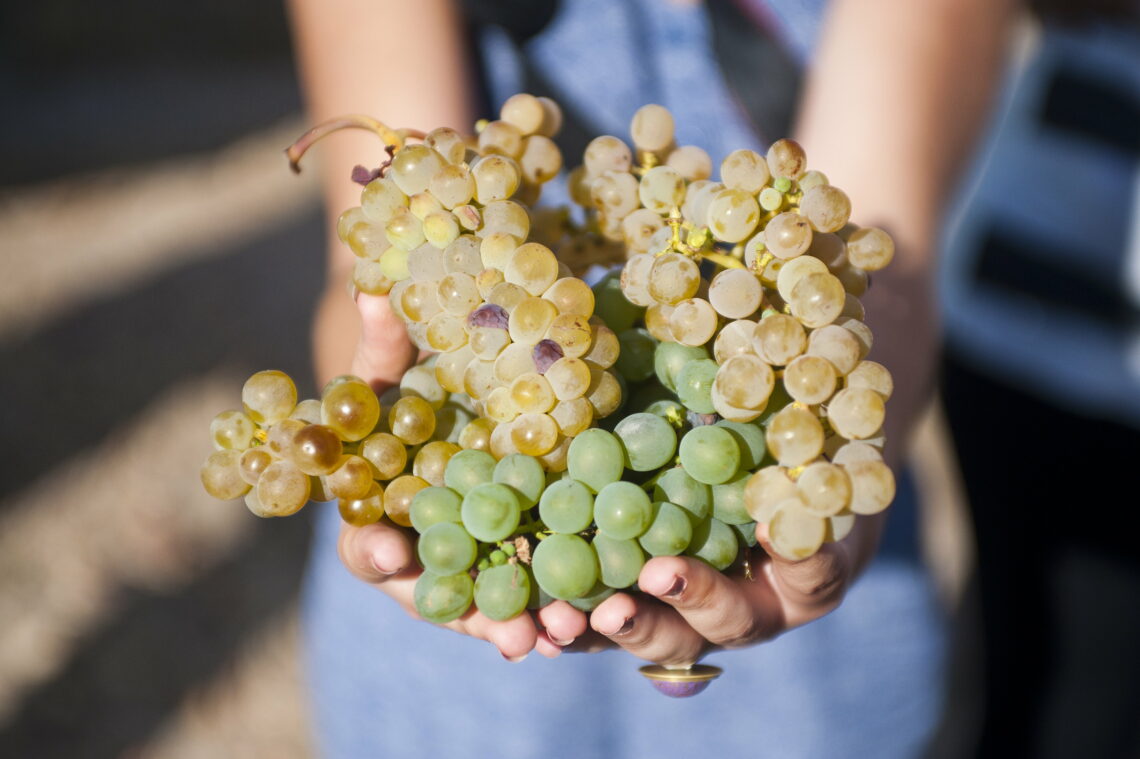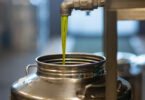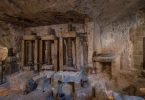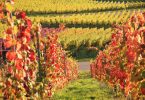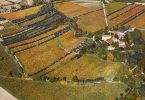One of the oldest and most prestigious Spanish wine routes winds through the heart of Castile, which we have already written about here.
The director of the Rueda Wine Route Association, Marta Martínez, recalls the importance of sharing wine as history, tradition and culture and explains how the Rueda Wine Route is committed to the dissemination of sustainable ecotourism, to move with the times.
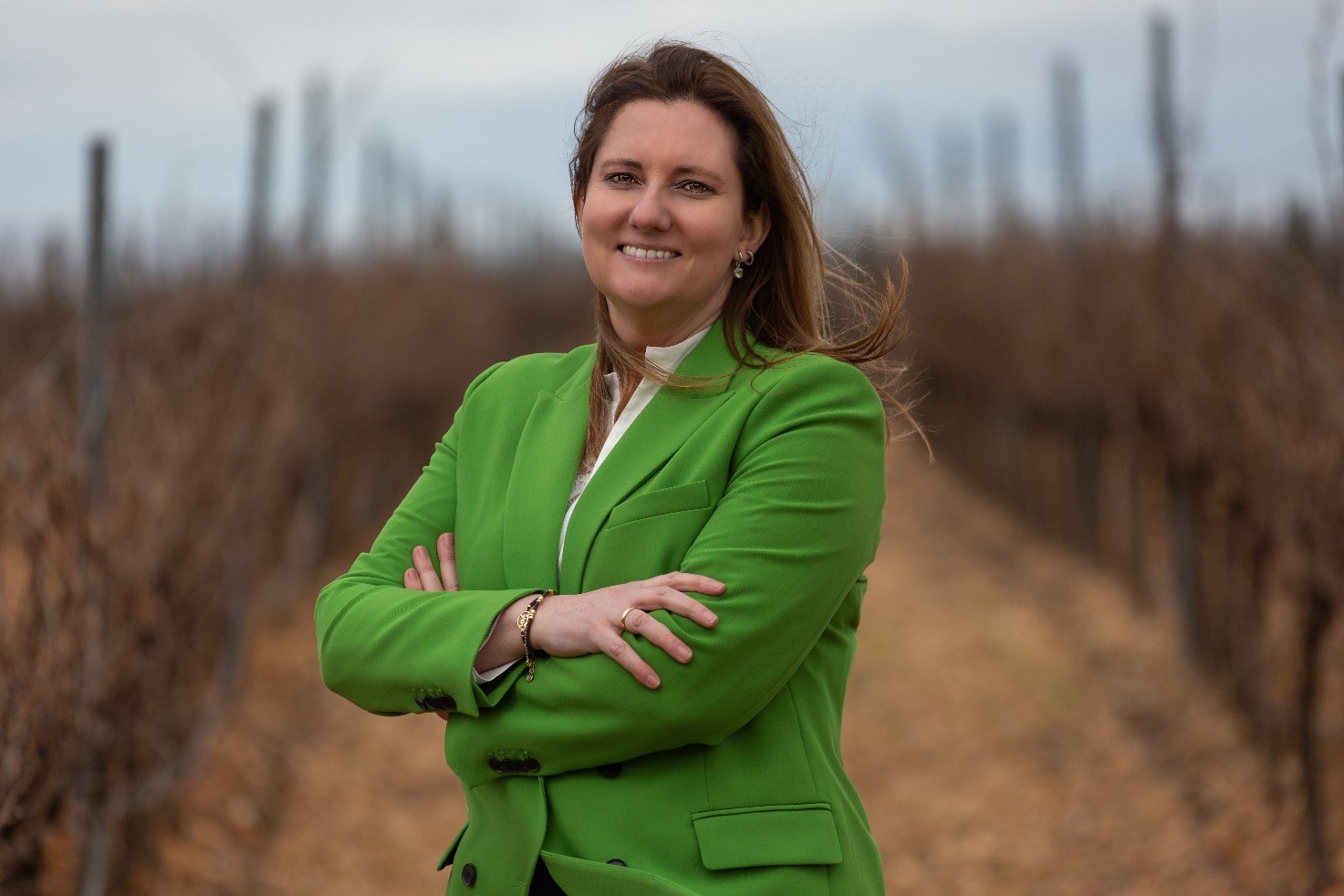
©Ruta del vino de Rueda- Marta Martinez Presidente
Since the last conversation with your Association, what objectives have been achieved and what are the next?
Things have changed a lot since the last interview. What can we say about the shock that the pandemic has brought for the wine tourism sector or for wine consumption even if, seen in perspective, we can consider ourselves privileged.
However, despite this event that has marked our history and our lives, the balance of recent years is very positive. In 2021, we worked on a new Strategic Plan for the territory, which confirmed some premises we were working on, which helped us understand and see how we could adapt to the new needs of tourists. With it, we were able to create a roadmap, never better said, towards which we can project ourselves in the coming years and, from here, with clear objectives, we have worked, conscientiously, to achieve them.
We take advantage of the opportunities that Europe offers us through the Next Generation funds, we are making progress in many areas that will help us take on the leading role as a wine tourism destination. Among these, sustainability, of course, but also digitalisation, the circular economy, the improvement of the professionalisation of the sector or the recovery and valorisation of our wine heritage.
Ten centuries of wine production is a long way and we are aware that we have an important winemaking culture and tradition. For this reason, we are working to give visibility to all that wine DNA that characterizes us as the recovery of our underground cellars.
For the future, there is a lot to do but, perhaps, the most interesting project is a Tourism Sustainability Plan that has an economic endowment that will allow us to develop some particularly important actions such as the development of a sustainable mobility network, a vineyard atlas or an exciting project in a medieval castle.
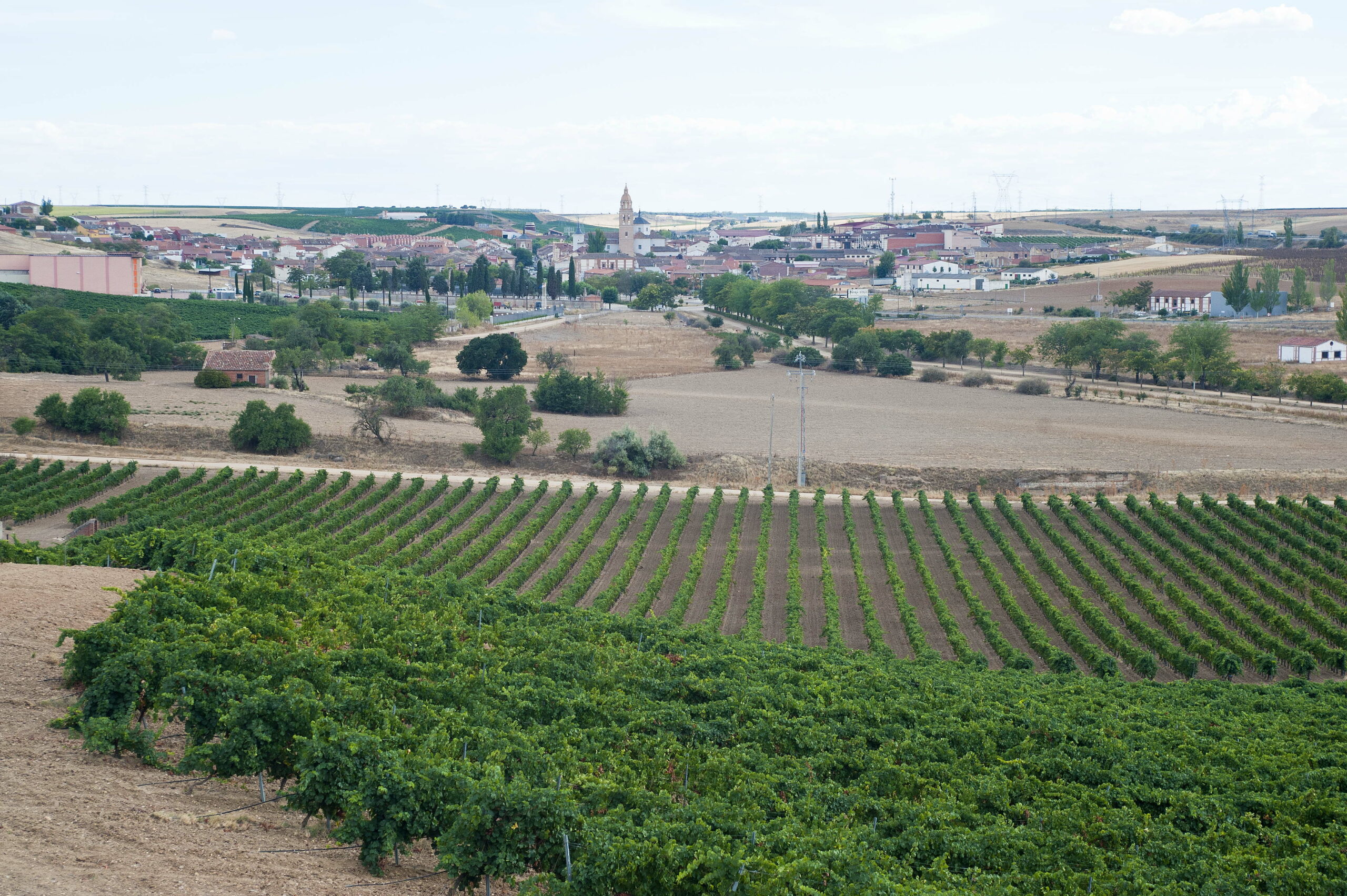
©Ruta del vino de Rueda
For us, wine is life, it is culture. In a land with more than a thousand years of winemaking tradition, life cannot be understood without it. It has been and is part of our daily life and constitutes, as I have reiterated, our very DNA, and this is what we show the traveler in our wine tourism offer.
Here, we don’t invent anything, everything that can be seen and known is what we are: the life of the winemaker, the customs of our countries, the oenological and viticultural development that we are experiencing in recent years, our gastronomy, everything has a flavor of white wine).
Of course, we always defend moderate consumption and understand that, from this position, wine is a food. But not just any one, one full of meaning, which is why reifying it and transforming it into a product of debate makes us very sad. Something so important for many European countries cannot be separated from the historical and emotional weight that bringing it to the debate represents. It is clear that uncontrolled alcohol consumption is bad for our health but, from a responsible position, wine should not enter into this topic.
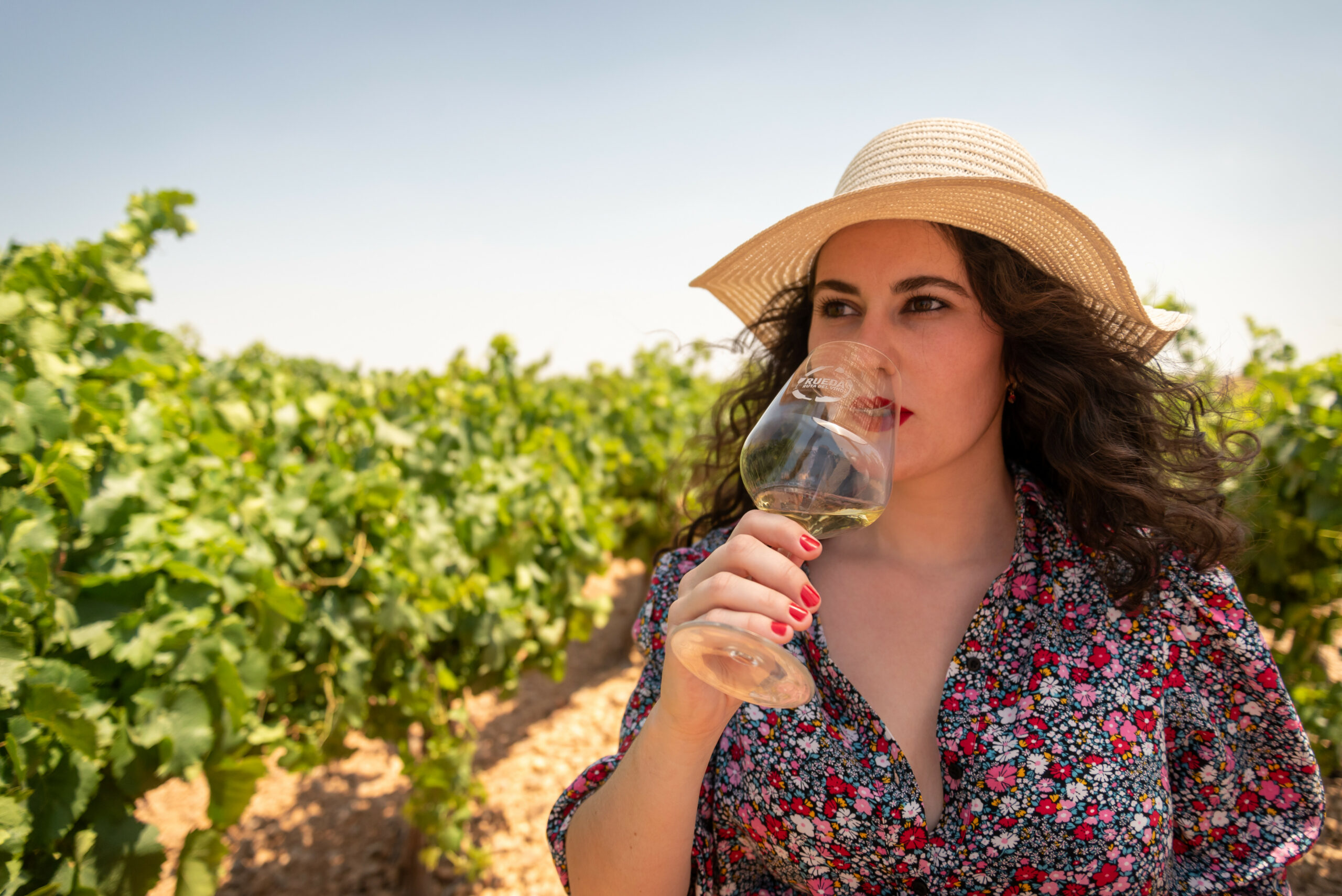
©Ruta del vino de Rueda- Aquilea Rueda
The Rueda Wine Route offers visitors a seal of quality. When a facility hangs our badge on its door, it undertakes to respect premises and standards that guarantee the best customer service. For this, they pass a six-monthly certification that corroborates it. But, at Rueda Wine Route, we work with a 360° approach, from the inside out. From the professionalization of the sector, providing them with the necessary tools to adapt to the new needs of consumers, to promotion, diffusion, the development of an agreed agenda in the territory, etc. There is a lot of internal work by our professionals to make this a structured and coordinated wine tourism destination. This, perhaps, is not perceived by tourists, but it is what allows them to spend a weekend in our area and enjoy a varied offer and a rich program of activities.
Through the Rueda Wine Route website, visitors can easily organize their trip, find out about the activities we offer, special events, or even book visits to the cellars and other proposals of interest.
Annually, we also carry out some specific actions, such as concerts in the vineyard or our Unique Tastings in Unique Places, which allow us to combine heritage, wine and gastronomy in magical environments.
If something characterizes our cellars it is their innovative character. We’re not just talking about adaptation, I’d say it goes beyond that. From those golden and pale wines that conquered the palates of Kings in the 15th and 16th centuries to the immense variety of wines on the market today, many years of research, attempts and the desire to surprise have passed. Our native grape variety, Verdejo, is a very versatile variety and this makes it easier to diversify and expand the wine offering. Therefore, among the set of quality white wines of the Rueda Designation of Origin, today we can find young, fresh and fruity wines; wines aged in barrels, foudré or concrete eggs; wines fermented on yeasts, of great finesse and elegance; our classic golden and pale or even sparkling. Perhaps one of the most important bets of recent years is the production of gastronomic wines, with sufficient complexity and structure to accompany all types of dishes. It’s a way to respond to a global trend in which consumption of white wines is increasing, compared to reds and rosés.
Likewise, something that has marked our viticulture and our cellars is sustainability, understood from the ecological concept but also assimilated through protocols which, without going through certification, are based on responsibility towards our planet. It is our way of responding to market demands but also our way of thanking our land for everything good it offers us. A bet on the future.


